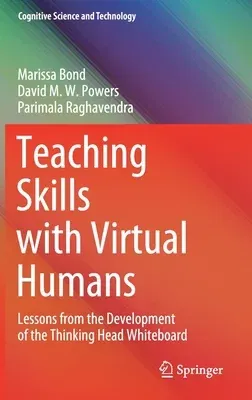Marissa Bond
(Author)Teaching Skills with Virtual Humans: Lessons from the Development of the Thinking Head Whiteboard (2021)Hardcover - 2021, 11 June 2021

Qty
1
Turbo
Ships in 2 - 3 days
In Stock
Free Delivery
Cash on Delivery
15 Days
Free Returns
Secure Checkout

Part of Series
Cognitive Science and Technology
Print Length
116 pages
Language
English
Publisher
Springer
Date Published
11 Jun 2021
ISBN-10
9811623112
ISBN-13
9789811623110
Description
Product Details
Book Edition:
2021
Book Format:
Hardcover
Country of Origin:
NL
Date Published:
11 June 2021
Dimensions:
23.39 x
15.6 x
0.97 cm
ISBN-10:
9811623112
ISBN-13:
9789811623110
Language:
English
Location:
Singapore
Pages:
116
Publisher:
Weight:
362.87 gm